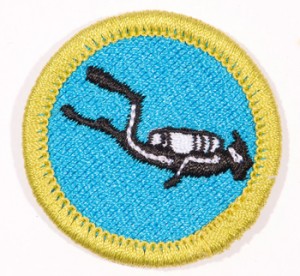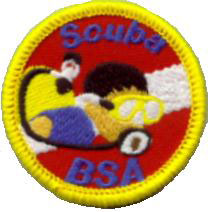Troop 452,
|
 |
Troop 452,
|

|
Troop 452
|
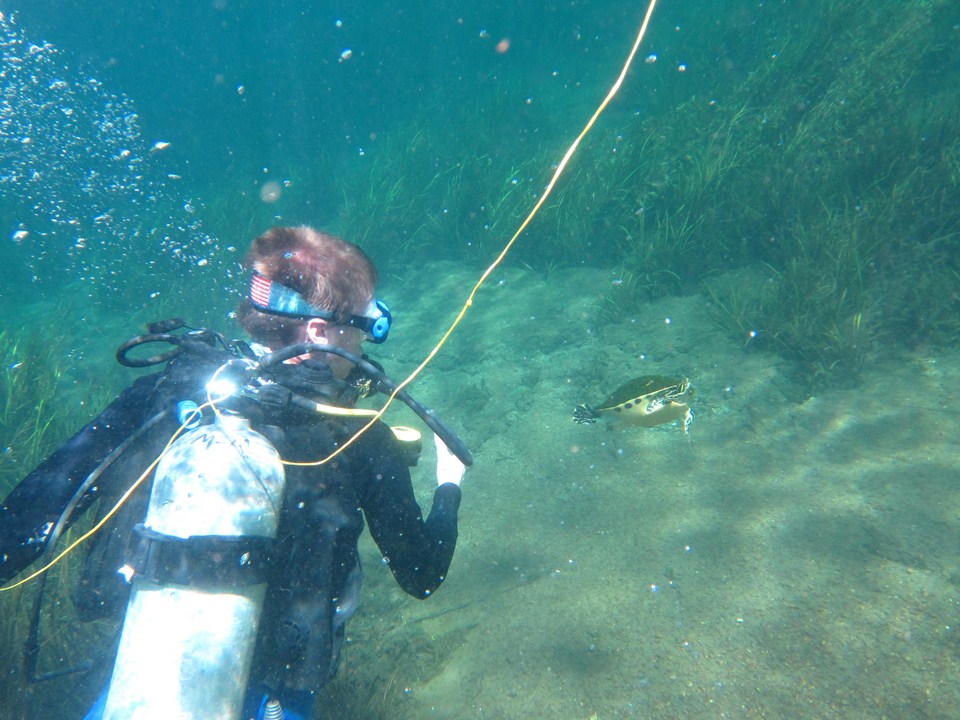
|
Troop 75 Atlanta:Rainbow River Redux
|
|
Family Certification |
 |
Georgia Scout Troops
994 Woodstock
|
|
Manatee Springs
|
|
Rainbow River Drift Dive |
|
Three Sisters Springs |
|
King's Spring |

|
Catfish Corner |
 |
Boy Scout Troop 452,
|
|
|
|
Scuba Diving Merit Badge |
|
| Requirements:
1.Do the following: 2.Show that you know first aid for injuries or illnesses that could occur while scuba diving, including hypothermia, hyperventilation, squeezes, decompression illness, nitrogen narcosis, motion sickness, fatigue, overexertion, heat reactions, dehydration, injuries by aquatic life, and cuts and scrapes. 3.Identify the conditions that must exist before performing CPR on a person, and explain how to recognize such conditions. Demonstrate the proper technique for performing CPR using a training device approved by your counselor. 4.Before completing requirements 3 through 6, earn the Swimming merit badge. 5.Discuss the Scuba Diver’s Code with your merit badge counselor, and explain the importance of each guideline to a scuba diver’s safety. 6.Earn an Open Water Diver Certification from a scuba organization recognized by the Boy Scouts of America scuba policy. 7.Explain what an ecosystem is, and describe four aquatic ecosystems a diver might experience. 8.Find out about three career opportunities in the scuba industry. Pick one and find out the education, training, and experience required for this profession. Discuss this with your counselor, and explain why this profession might interest you. |
The Scuba Diving Merit Badge: Photographs of a Monthly Dive Program. "Scuba is a Game with a Porpoise!"
|
|
The Boy Scouts of America is not a dive certification agency. Your merit badge counselor can help you find a scuba agency recognized by the Boy Scouts of America scuba policy so that you can fulfill requirement 4. Scouts who have already earned an Open Water Diver Certification outside of a Boy Scouts of America activity from a scuba agency recognized by the Boy Scouts of America scuba policy may still earn the Scuba Diving merit badge by earning the Swimming merit badge and completing all other listed requirements. |
|
| Note to the Counselor:
Counselors for the Scuba Diving merit badge must be registered with the Boy Scouts of America and be approved by the district/council advancement committee. Like other merit badges, the Scuba Diving merit badge has been developed to teach and train youth in a manner consistent with the overall goals and values of the Boy Scouts of America. The merit badge counselor should be fair and consistent when presenting and evaluating the knowledge and skills specified by the requirements. None of the requirements may be modified or omitted. Unlike many other merit badges, the Scuba Diving critical prerequisites, knowledge, and skills are not itemized in the requirements nor adequately covered in the pamphlet. The requirement to earn Open Water Diver Certification means the Scout must meet training requirements set by outside agencies and must supplement the material in this pamphlet with an entry-level scuba diver manual. All phases of scuba instruction—classroom, pool, and open water training—must comply with the minimum training standards for entry-level scuba certification adopted by the American National Standards Institute (ANSI) or the U.S. Recreational Scuba Training Council (RSTC). The RSTC is recognized as the ANSI Accredited Standards Developer for recreational diving instructional standards. The Boy Scouts of America acknowledges those standards by limiting scuba instruction only to instructors trained and sanctioned by recognized scuba agencies. Agencies recognized by the Boy Scouts of America for scuba training are PADI (Professional Association of Diving Instructors); NAUI (National Association of Underwater Instructors); SSI (Scuba Schools International); IDEA (International Diving Educators Association); PDIC (Professional Diving Instructors Corporation); and SDI (Scuba Diving International). In addition to the agencies listed by name, any current member of the World Recreational Scuba Training Council (WRSTC) is also recognized. Each approved instructor must follow the training protocols established by his or her authorizing agency, including limitations and special provisions based on medical conditions and age. For Scout divers under age 15, this will include restrictions for maximum depth, buddies, and supervision ratios. Scuba industry standards for Open Water Diver Certification require the student to be at least 15 years of age. Students under the minimum age who meet open water scuba performance requirements may qualify for a special certification that allows them to dive with an adult buddy who has, as a minimum, an open water scuba certification. Several of the scuba organizations recognized by the Boy Scouts of America offer “junior” open water certifications for those as young as 10; others have a minimum age of 12. Such junior open water diver certifications satisfy Scuba Diving merit badge requirement 4. When scuba diving is taught in connection with any local council program, such as offering the Scuba Diving merit badge at summer camp, instructors should provide the training on a contract basis. Such instructors should have dive store or other commercial affiliation that provides liability coverage. Direct employment of scuba instructors is not recommended. Local council programs may not compress or sell air for scuba use, or sell, rent, or loan scuba equipment (scuba cylinders, regulators, gauges, dive computers, weights, BCDs). All air and scuba equipment for local council use must be obtained from professional sources (dive stores, resorts, dive boats, etc.) affiliated with a scuba agency recognized by the Boy Scouts of America.
|
|
SCUBA BSA Patch |
|
| Requirements:
1.Before doing other requirements, successfully complete the Boy Scouts of America swimmer test. To begin the test, jump feet first into water over the head in depth, level off, and begin swimming. Swim 75 yards in a strong manner using one or more of the following strokes: sidestroke, breaststroke, trudgen, or crawl; then swim 25 yards using an easy, resting backstroke. The 100 yards must be completed in one swim without stops and must include at least one sharp turn. After completing the swim, rest by floating. 2. Discuss the importance of using the buddy system at all times while scuba diving. Explain that a dive buddy is there to assist with the donning and doffing of equipment, to lend assistance in case of emergency, and to share in the underwater experience. Remember, always dive with a buddy—Never dive alone! 3. Review hazards associated with scuba diving, including causes of decompression incidents, and safety procedures to avoid them. Explain the importance of never using scuba equipment unless you are enrolled in a training exercise, or have completed a diver certification program, taught by a certified instructor. By the end of a Water Skills Development session, the participants will be able to meet the following requirements in clear, confined water: 4. State the purpose of the following pieces of basic diving equipment: mask, fins, BCD, BCD inflator, regulator, air gauge, and alternate air source. 5. Describe how to locate the air gauge, and explain how to recognize the "caution zone" on it. 6. Don and adjust mask, fins, snorkel, BCD, scuba, and weights with the assistance of a buddy, instructor, or certified assistant. 7. While underwater, demonstrate and recognize the following hand signals: Okay?/Okay!; Stop; Up; Down; Out of air; Come here; Ear problem; Slow down/Take it easy; Something is wrong; Watch me; Check your air supply. 8. Inflate/deflate a BCD at the surface using the low-pressure inflator. 9. In shallow water, demonstrate proper compressed air breathing habits; remember to breathe naturally and not hold the breath. 10.Clear the regulator while underwater using both exhalation and purge-button methods, and resume normal breathing from it. 11.In shallow water, recover a regulator hose from behind the shoulder while underwater. 12.In shallow water, clear a partially flooded mask while underwater. 13.Swim underwater with scuba equipment while maintaining control of both direction and depth, properly equalizing the ears and mask to accommodate depth changes. 14.While underwater, locate and read submersible pressure gauge and signal whether the air supply is adequate or low based on the gauge's caution zone. 15.In shallow water, breathe underwater for at least 30 seconds from an alternate air source supplied by the instructor. 16. Demonstrate the techniques for a proper ascent. NOTE: The counselor for Scuba BSA must hold an instructor rating and be in current teaching status with PADI, NAUI, SSI, or other member of the RSTC in accordance with Boy Scouts of America scuba policies. Instruction must meet the minimum training standards for introductory scuba experiences set by the RSTC and guidelines provided in the Scuba Boy Scouts of America Brochure, No. 14-515. Boy Scouts of America scuba policies are provided in that brochure and also in the Guide to Safe Scouting.
|
The Scuba BSA Patch is worn on the left side of the swim trunks. It is not a Merit Badge and it can NOT be worn on the Uniform.
|
BSA Scuba PolicyThe Boy Scouts of America scuba policy recognizes scuba industry standards and implements them by using outside agencies for training and certification. Training and SupervisionAny person possessing, displaying, or using scuba (self-contained underwater breathing apparatus) in connection with any Scouting-related activity must be either currently certified by a recognized agency or enrolled in an instructional scuba program, such as Scuba BSA or Scuba Diving merit badge, which must be conducted by an insured recreational diving instructor in good standing with a recognized agency and approved by the council. Recreational diving activities by BSA groups must be supervised by a responsible adult currently certified (renewed) as a divemaster, assistant instructor, or higher rating from a recognized agency. Dive environments, equipment, depths, procedures, supervision, and buddy assignments must be consistent with each individual’s certification. Because dives by recreational divers may be infrequent, the divemaster or instructor supervising a BSA scuba activity should screen participants prior to open-water activities and provide remedial instruction and practice as appropriate. Such remedial instruction and practice should be in accordance with the policies and standards of the divemaster’s or instructor’s agency for Scuba Review, Scuba Refresher, or similar program. Diving using surface-supplied air systems is not authorized in connection with any BSA activity or facility except when done under contract by commercial divers. Age-Appropriate Restrictions Youth members in Cub Scouting, including Webelos Scouts, are not authorized to use scuba in any activity. Boy Scouts may participate in the introductory Scuba BSA program and may obtain open-water certification as part of Scuba Diving merit badge. Varsity and Venturing groups may participate in introductory and certification scuba programs conducted by recognized agencies appropriate to their age and current level of certification. Standards of the recognized scuba agencies require students for open-water certification programs to be at least 15 years of age but allow special certification programs for younger students. Since all instruction for BSA scuba programs must be conducted by professionals certified by a recognized agency, additional agency-specific, age-related restrictions and protocols apply to students under 15 years of age. Boy Scouts, Varsity Scouts, and Venturers may participate in recreational group dives as unit, district, or council activities, provided such dives are consistent with their certifications and under direct, on-site supervision of a responsible adult currently certified as a divemaster, assistant instructor, or higher rating from a recognized agency. The divemaster or instructor supervising a recreational dive by a BSA group must implement the following policies for all divers under 15 years of age, as well as any additional junior diver restrictions and protocols adopted by that person’s certifying agency: ¦Depths are limited to 40 feet for divers under 12 years of age and to 60 feet for divers 12 to 14 years of age. ¦Each diver under 15 years of age must have an adult buddy certified as an open-water diver who is either the junior diver’s parent or an adult approved by the parent. ¦Additional divemasters or instructors are present to maintain a ratio of one trained supervisor to four buddy pairs (eight divers) containing one to four divers under 15 years of age. Medical Contraindications Each scuba training agency recognized by the BSA requires a specific health history form prior to enrollment in a certification program. The BSA requires review and approval of the completed form by a physician even if the scuba agency itself does not require physician approval. Various risk factors identified on the forms may exclude a person from scuba training, either temporarily or permanently. Risk factors include, but are not limited to, ear and sinus problems, recent surgery, spontaneous pneumothorax, asthma or reactive airway disease (RAD), seizure disorders, diabetes, leukemia, sickle-cell disorder, pregnancy, panic disorders, and active psychosis. The divemaster or instructor supervising a BSA recreational scuba activity must review the health information for each participant that is required annually of all BSA members and evaluate risk conditions using medical standards consistent with those used by his or her certifying agency. Additional tests or physician consultations may be required to confirm fitness for diving. Consultation with medical specialists knowledgeable about diving medicine also may be needed for participants taking psychotropic drugs for treatment of attention deficit disorder, depression, or other conditions. Scuba diving is prohibited for the following conditions. ¦Use of medication to control seizures or seizure occurrence within the past five years ¦Use of insulin to control diabetes ¦History of asthma or RAD unless resolution confirmed by methacholine testing (Persons who have been asymptomatic and medication free for the previous five years are exempt from the methacholine testing requirements.) The scuba agencies recognized by the BSA may allow exceptions to general medical prohibitions based on individual diving fitness evaluations by a medical specialist who is knowledgeable about diving medicine. Scouts, parents, dive supervisors, and physicians with questions or concerns about diving with specific medical conditions should consult the Recreational Scuba Training Council (RSTC) Guidelines for Recreational Scuba Diver’s Physical Examination and the Divers Alert Network (DAN) at www.diversalertnetwork.org. DAN medical professionals are available for nonemergency consultation by telephone at 919-684-2948 during business hours or via e-mail. Council Programs When scuba diving is taught in connection with any local council program, instructors should provide the training on a contract basis. Such instructors should have dive store or other commercial affiliation that provides liability insurance coverage. Direct employment of scuba instructors is not recommended. Local council programs may not compress or sell air for scuba use, or sell, rent, or loan scuba equipment (scuba cylinders, regulators, gauges, dive computers, weights, or BCDs). All air and equipment for local council program use must be obtained from professional sources (dive stores, resorts, dive boats, etc.) affiliated with a scuba agency recognized by the BSA. Scuba equipment may be used by certified summer camp aquatics program personnel for installation and maintenance of waterfront equipment, or for search and recovery operations. Search and recovery could include lost equipment, as well as rescue efforts. Recognized Agencies Recognized agencies are: ¦PADI: Professional Association of Diving Instructors ¦NAUI: National Association of Underwater Instructors ¦SSI: Scuba Schools International ¦IDEA: International Diving Educators Association ¦PDIC: Professional Diving Instructors Corporation ¦SDI: Scuba Diving International ¦YMCA Scuba Program (discontinued in 2008, but certification cards are still recognized) ¦NASDS: National Association of Scuba Diving Schools (merged with SSI, but certification cards are still recognized) In addition to the agencies listed by name, any current member of the World Recreational Scuba Training Council (WRSTC), which includes all RSTC members, is also recognized. Other agencies wishing to be recognized by the BSA may contact the Outdoor Programs Team of the national office. Recognition by a certifying body such as the RSTC or EUF that the agency adheres to ANSI/CEN/ISO standards would be expected.
|
|
Filmed by Boy Scout Scuba Troop 452 Citrus County |
|
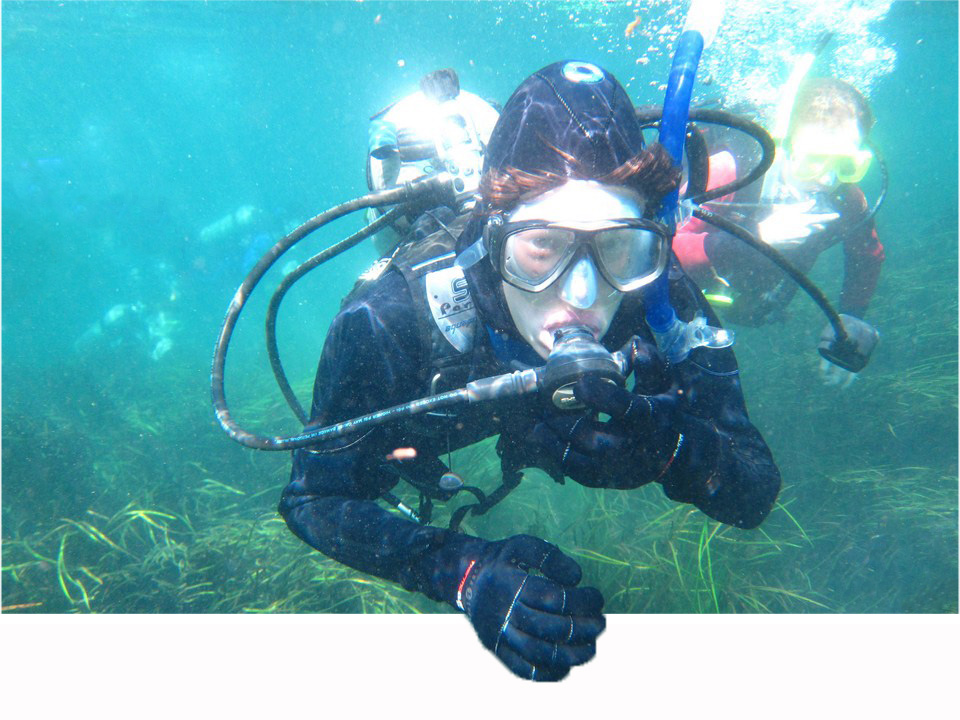




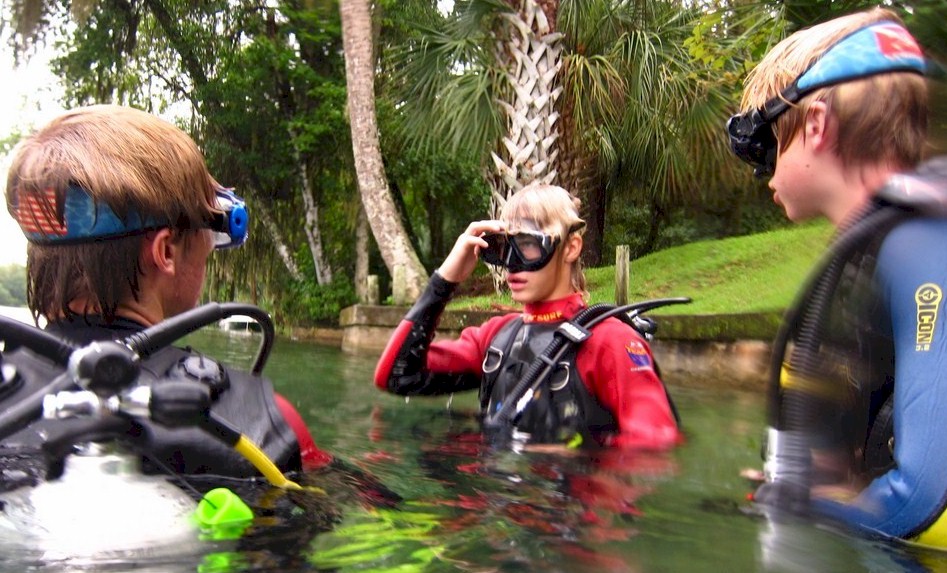
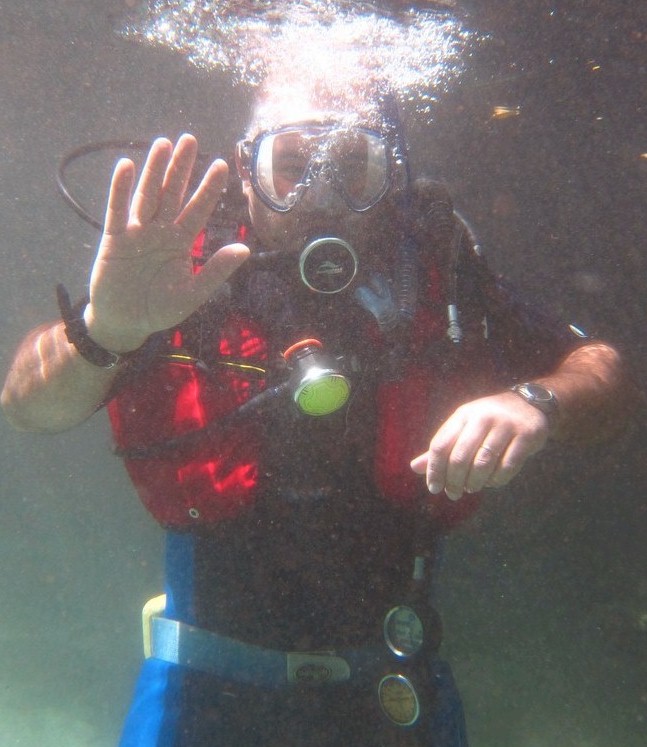 "Scuba is a Game with a Porpoise."
"Scuba is a Game with a Porpoise."
